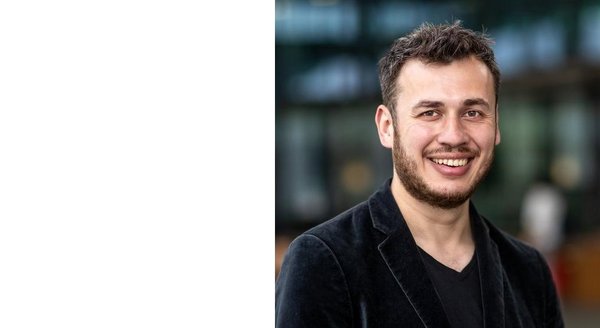Date
Wednesday November 13, 2019 from 1:30 PM to 2:30 PMLocation
TU/eOrganizer
Data ScienceBuilding
Gemini-South (GEM-Z) 1.03The November meeting features two talks:

Erik Bekkers
Mathematics and Computer Science Department, TU/e
Title
Brain-inspired image analysis and group equivariant deep learning
Abstract
In this talk I will go through some brain-inspired algorithms for medical image analysis and machine learning. Main ingredients for modeling the perceptual behavior of the visual system are sub-Riemannian geometry and group theory. The use of such theories in algorithm design leads to methods that are both effective and efficient.
Neuro-physiological findings show that in one of the first layers (V1) in the visual pathway stimuli are organized based on positions and orientations via so-called simple cells whose receptive fields act as line detectors. We model this part by lifting image data to the Lie group SE(2) via group convolutional neural networks. Findings from both neuro-physiology (horizontal connections in V1) and psychology of vision (Gestalt theory) show that long-range interactions exist between activated neurons that have “aligned” receptive fields, this behavior is modeled with a sub-Riemannian geometry on SE(2).
In this talk I will explain the core mathematical techniques on a high level, present several applications of brain-inspired image analysis, and show that the discussed theory enables unique analysis techniques that eliminates some of the fundamental problems of classical Euclidean approaches. Two of the main applications will be tracking of blood vessels via sub-Riemannian geodesics and image analysis via group convolution neural networks (G-CNNs).

Aliaksei (Alex) Vasilevich
BME Department, TU/e
Title
Roadmap to Data-Driven Biomaterials Discovery
Abstract
Biomaterials field is very interdisciplinary research that requires knowledge of chemistry, material science and biology. We and others have shown before that machine learning can discover relations between biomaterial design and biological effect using the screening data. Affordable data acquisition leads to accumulation of data with unused potential which is scattered across different labs and institutes. Analysis of this data can potentially uncover relations that are not obvious otherwise. The challenges are to merge the data from different scientific groups to make it accessible for the analysis. Aliaksei is going to share his ideas how to make it possible and would like to hear input from broader community.
About the speaker
Aliaksei keens on the application of data science solutions for biomaterials discovery. Inspired by successes in other areas, he is excited about opportunities that data science can help in novel biomaterials discovery. In his current role, he embarked on a challenge to streamline biomaterials data management to make it ready for knowledge discovery via machine learning.
(Big) Data and Health Meetings
The (Big) Data and Health Meetings meetings were founded in 2017, mainly as a forum for the people from the Biomedical Engineering Department interested in methods for data analysis, like machine learning, neural networks or different statistical techniques. However, the meetings have always been open for researchers from other TU/e departments as well as outside the university. Since late 2019 onward, the meeting series is also endorsed and supported by the Data Science Center Eindhoven (DSCE). In particular, alignment to the multi-disciplinary research programs of Health Analytics (http://tue.nl/ds/ha) and Quantified Self (http://tue.nl/ds/qs) and Health research within EAISI is facilitated.
If you are interested to participate in the meetings (attend, give a presentation, etc.) please contact Dragan Bosnacki (D.Bosnacki@tue.nl) and Pieter Van Gorp (P.M.E.v.Gorp@tue.nl).
